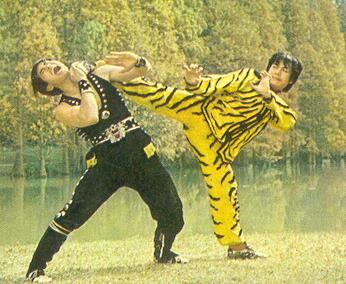 I’ll admit it: I am completely incapable of understanding other cultures, races, ethnicities and creeds without a white surrogate. I am frightened by the other. They smell different. They eat loudly. They lambada.
I’ll admit it: I am completely incapable of understanding other cultures, races, ethnicities and creeds without a white surrogate. I am frightened by the other. They smell different. They eat loudly. They lambada.
Thankfully, Hollywood feels the same way. For example, when they deign to diagnose, say, the extremely naughty conflict diamond trade in Sierra Leone, they know to give me a handsome white face so as to remind me that not all people are dirty and beyond salvation. When I see this beacon of becalmed, beatific, blanched humanity, I know there is good in the world, and I leave the theater confident that, with a little training, Sierra Leone’s tallest male children could become excellent shot blockers in the NBA.
China poses similar problems. Though the country has produced a handful of very talented directors – and, recently, basketball players – who who seem very interested in learning the correct, American way of doing things, they still can’t be trusted to document their own history. Leave these guys to their own devices and, the next thing you know, everyone’s flying. This ludicrousness surely explains why Robert De Niro and his Tribeca producing partner, Jane Rosenthal, have opted to use the rise of Chairman Mao Zedong as a backdrop for a love story between a white journalist and, according to Variety, "a Chinese interpreter who may have been a spy." "May have been…" Really. Was she Chinese?
The currently untitled film will be based on Roy Rowan’s Chasing the Dragon: A Veteran Journalist’s Firsthand Account of the 1949 Chinese Revolution. Rowan is the interpreter-bedding reporter in question, and I am excited to see how he is transformed by an exciting time in history that surely gave him plenty of stories to tell his grandchildren. If we’re lucky, maybe he got to meet Chairman Mao once; and maybe screenwriters Jon Marans and Yuri Sivo of Cookin’ in Brooklyn will share this thrilling encounter with their audience provided it didn’t get too weird and Chinese and stuff.